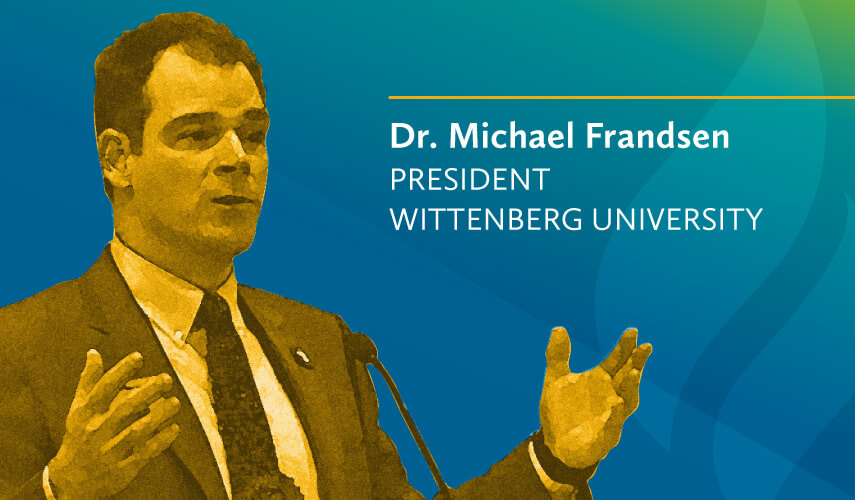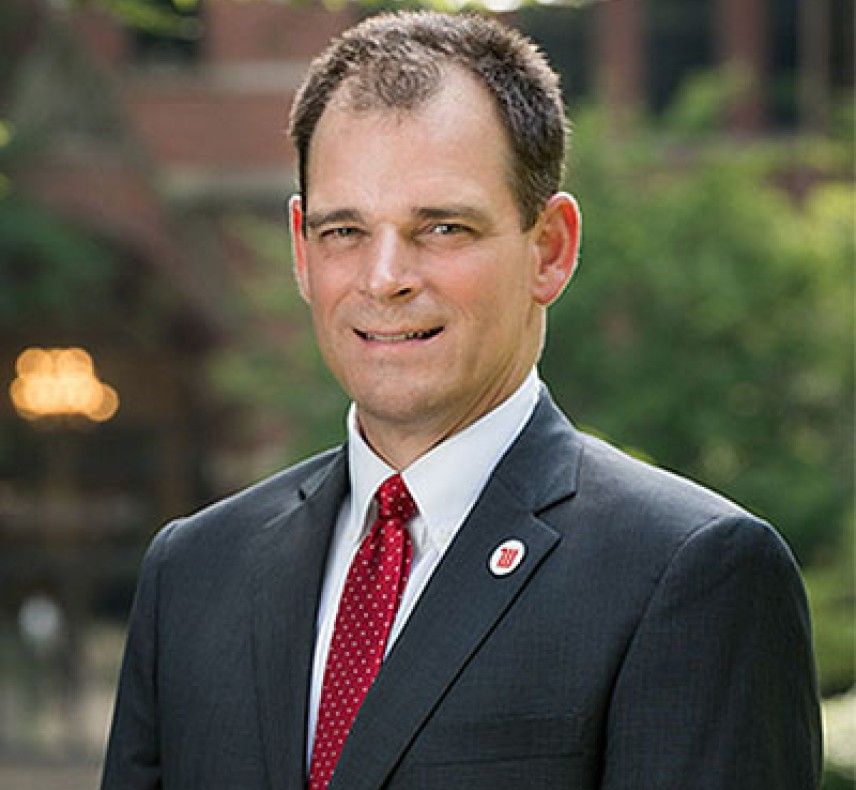
Courageous Leadership
Navigating Crisis with Clarity
Today was one of the hardest days of my career. It was the day we notified people that their positions are being eliminated. These decisions are painful, but necessary. Recently, Wittenberg University’s Board of Directors passed a resolution to eliminate 24 full-time equivalent faculty roles, 45 staff positions, and five majors with their corresponding minors and two athletic programs after the current academic year, all to balance the operating budget by fiscal year 2027.
As a leader, this is one of the most difficult part of the job. But we can’t continue as we are. We must honor our 180-year history while embracing the need for change, all without losing our sense of community and support.
The guiding principle I rely on is our students. Every decision must minimize the impact on their experience, education, and time with us. How do we continue to prepare them for their futures? That’s our North Star—why we exist as a university. And it’s the people – faculty and staff – who make that happen.
Not everyone agrees with these decisions, but in a complex organization like ours, which is a primarily residential college, we must strike the right balance. We aim to minimize disruption to students while also ensuring our employees aren’t overburdened by constant demands. Our focus must be on what truly adds value and discontinue what doesn’t.
Cost-Cutting with an Eye on Tomorrow
Balancing immediate cost reductions with long-term goals of academic excellence and student success is no easy task. At a recent board meeting, I gave each member a needle threader to symbolize the fine line we walk. Whether it’s our communication, financial, or program plans, maintaining service and excellence while being fiscally responsible is a delicate balancing act.
We’re in a people business. People drive both what we do and what it costs. To maintain high quality, you need high-quality people. While we’ve outsourced services like IT, food, and janitorial work, we’ve brought some things back in-house, such as janitorial services in residence halls, to foster personal connections between staff and students. We must avoid short-term fixes for long-term problems. For example, suspending retirement contributions or temporary pay cuts won’t address our structural cost issues. This isn’t unique to Wittenberg, and I’ve worked hard to steer the board away from such band-aid solutions.
Instead, we’re narrowing our focus to what matters most and leveraging strategic partnerships to keep moving forward. We’ve expanded partnerships for online courses, and students can now earn dual degrees in physics and engineering through our collaboration with Indiana Tech University. Our partnership with Erie Insurance offers students internships and job opportunities, and our partnership has led to the creation of a risk management certificate program. We’re also providing tuition benefits for Erie employees’ dependents. Locally, we’ve launched a preferred partner program with businesses to create more student opportunities.
Transparency Builds Trust
Transparency is essential in times of crisis. I’ve been regularly meeting with faculty, the Faculty Executive Board, and the Student Senate Executive Committee. I’ve answered numerous emails and shared communications frequently. As a “finance guy,” I know I have to be mindful of how I communicate, remembering who the audience is and avoiding jargon and acronyms. Repetition and consistency are key to making sure everyone understands. We also work with a crisis communication partner to ensure our messages are empathetic and honest about the challenges we face.
Recently, Wittenberg was featured on a podcast by the College Viability Network, sparking a lot of social media attention. One of our faculty members was quick to point out that everything mentioned in the podcast had already been shared with the faculty. That made me feel our efforts are working.
While people who join Wittenberg from other institutions often praise our transparency, it’s never quite enough. There’s always a feeling that more should be shared. I understand the desire for more information, especially in uncertain times, and we strive to provide as much clarity as possible while balancing the need for discretion and timing. I’ve found that transparency, when done thoughtfully, helps to build trust, even when the news is difficult.
Self-Care as a Leader
I care deeply about our faculty and staff, so this decision has weighed on me heavily. I recently met with a faculty member whose position is being eliminated, and their child, a junior, will lose their tuition benefit next year. Another faculty member up for tenure is also losing their position. I try to be empathetic and supportive, but I know it’s hard for them to feel that coming from me as the leader right now.
I’m fortunate to have an incredibly supportive life partner who helps me navigate these challenges. For other leaders facing similar financial crises, I encourage you to find people you can talk to, whether a family member or a colleague. Don’t try to do this alone—it’s too much to bear. You need a support system.
Leading through tough decisions isn’t easy, but with the right focus and support, we can steer our institutions toward a better future.


